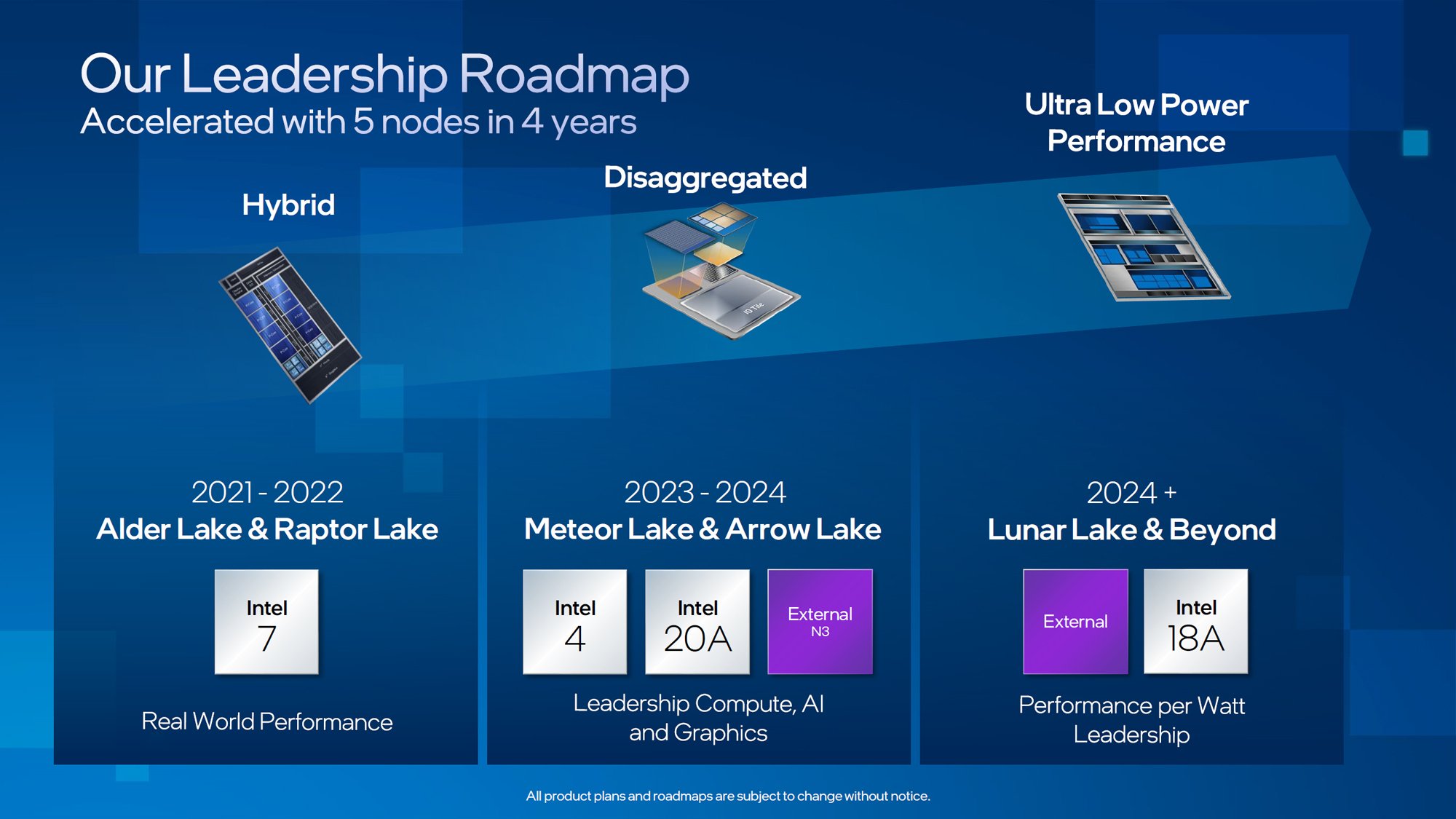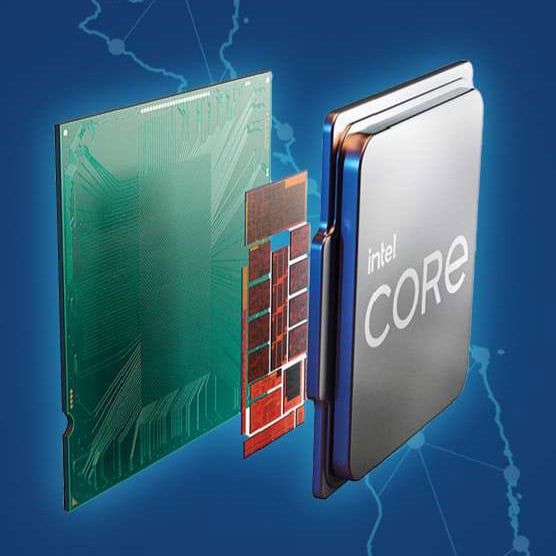
Intel Core i5-13600K Benchmark, Test and specs
Last updated:
The Intel Core i5-13600K is a 14 core processor. It can handle 20 threads simultaneously and was introduced in Q4/2022. The Intel Core i5-13600K is based on the 13. generation of the Intel Core i5 series and requires a mainboard with the socket LGA 1700. The Intel Core i5-13600K scores 1,955 points with one CPU core in the Geekbench 5 benchmark. When using all CPU cores, the result is 16,227 points.

| Name: | Intel Core i5-13600K |
|---|---|
| Family: | Intel Core i5 (331) |
| CPU group: | Intel Core i 13000 (17) |
| Architecture: | Raptor Lake S |
| Segment: | Desktop / Server |
| Generation: | 13 |
| Predecessor: | Intel Core i5-12600K |
| Successor: | Intel Core i5-14600K |
CPU Cores and Base Frequency
The 14 CPU cores of the Intel Core i5-13600K clock with 3.50 GHz (5.10 GHz). The number of CPU cores and the clock frequency of the processor are largely responsible for the overall performance.
| CPU Cores / Threads: | 14 / 20 |
|---|---|
| Core architecture: | hybrid (big.LITTLE) |
| A-Core: | 6x Raptor Cove |
| B-Core: | 8x Gracemont |
| Hyperthreading / SMT: | Yes |
|---|---|
| Overclocking: | Yes |
| A-Core Frequency: | 3.50 GHz (5.10 GHz) |
| B-Core Frequency: | 2.60 GHz (3.90 GHz) |
Internal Graphics
With the Intel UHD Graphics 770, the Intel Core i5-13600K has an build in graphic solution. It has 32 SM processors, which have a total of 256 texture shaders. The iGPU not only enables games, but also significantly accelerates video playback.
| GPU name: | Intel UHD Graphics 770 |
|---|---|
| GPU frequency: | 0.30 GHz |
| GPU (Turbo): | 1.50 GHz |
| Compute units: | 32 |
| Shader: | 256 |
| Hardware Raytracing: | No |
| Release date: | Q4/2021 |
| Max. displays: | 3 |
|---|---|
| Generation: | 11 |
| Direct X: | 12 |
| Technology: | 10 nm |
| Max. GPU Memory: | 64 GB |
| Frame Generation: | No |
Hardware codec support
Processors that have an integrated graphics can play videos faster and more efficiently. This can have a positive effect on the battery life of notebooks, for example.
| h265 / HEVC (8 bit): | Decode / Encode |
|---|---|
| h265 / HEVC (10 bit): | Decode / Encode |
| h264: | Decode / Encode |
| VP8: | Decode / Encode |
| VP9: | Decode / Encode |
| AV1: | Decode |
|---|---|
| AVC: | Decode / Encode |
| VC-1: | Decode |
| JPEG: | Decode / Encode |
Memory & PCIeThe Intel Core i5-13600K supports up to 192 GB memory in up to 2 (Dual Channel) memory channels. This results in a maximum memory bandwidth of 89.6 GB/s. |
|
| Memory type: | Memory bandwidth: |
|---|---|
| DDR5-5600 DDR4-3200 | 89.6 GB/s 51.2 GB/s |
| Max. Memory: | 192 GB |
| Memory channels: | 2 (Dual Channel) |
| ECC: | Yes |
| PCIe: | 5.0 x 20 |
| PCIe Bandwidth: | 78.8 GB/s |
Thermal ManagementWith the TDP, the processor manufacturer specifies the cooling solution required for the processor. The Intel Core i5-13600K has a TDP of 125 W. |
|
|---|---|
| TDP (PL1 / PBP): | 125 W |
| TDP (PL2): | 181 W |
| TDP up: | -- |
| TDP down: | -- |
| Tjunction max.: | 100 °C |
Technical details
The Intel Core i5-13600K has a 44.00 MB large cache. The processor is manufactured in 10 nm. Modern production increases the efficiency of the processor.
| Technology: | 10 nm |
|---|---|
| Chip design: | Monolithic |
| Socket: | LGA 1700 |
| L2-Cache: | 20.00 MB |
| L3-Cache: | 24.00 MB |
| AES-NI: | Yes |
| Operating systems: | Windows 10, Windows 11, Linux |
| Virtualization: | VT-x, VT-x EPT, VT-d |
|---|---|
| Instruction set (ISA): | x86-64 (64 bit) |
| ISA extensions: | SSE4.1, SSE4.2, AVX2, AVX2+ |
| Release date: | Q4/2022 |
| Release price: | 319 $ |
| Part Number: | -- |
| Documents: | Technical data sheet |
Rate this processor
Benchmark results

The benchmark results for the Intel Core i5-13600K have been carefully checked by us. We only publish benchmark results that have been created by us or that have been submitted by a visitor and then checked by a team member. All results are based on and fullfill our benchmark guidelines.
Screenshots:
Screenshots:
- Geekbench 5.4.5 on ASRock Z690 Phantom Gaming 4/D5 (32 GB RAM), Windows 10
- Cinebench R23 on ASUS ROG STRIX B660-I GAMING WIFI (32 GB DDR5-5600), Windows 11 Pro
- Blender 3.3 on ASUS ROG STRIX B660-I GAMING WIFI (32 GB DDR5-5600), Windows 11 Pro
- V-Ray 5.0.20 on ASUS ROG STRIX B660-I GAMING WIFI (32 GB DDR5-5600), Windows 11 Pro
- CPU-Z Benchmark 17 on ASUS ROG STRIX B660-I GAMING WIFI (32 GB DDR5-5600), Windows 11 Pro
- [OC] Cinebench R23 on ASUS ROG Strix Z690-A Gaming WiFi D4, Windows 10
- Cinebench R23 on MSI Pro Z790-A Wifi DDR4 (16 GB DDR4-3600), Windows 11
- PassMark CPU-Mark 10.2 on ASUS ROG STRIX B660-I GAMING WIFI (32 GB DDR5-5600), Windows 11 Pro
- Geekbench 6 (32 GB DDR5-5600), Windows 11 Pro
- AIDA64 Cache & Memory Benchmark 6.9 (32 GB DDR5-5600, Windows 11 Pro)
- AIDA64 GPGPU (iGPU) Benchmark 6.9 (32 GB DDR5-5600, Windows 11 Pro)
- HWiNFO64 7.6 CPUID
- Cinebench 2024 on ASUS ROG STRIX B660-I GAMING WIFI (32 GB DDR5-5600), Windows 11 Pro
Cinebench 2024 (Single-Core)
The Cinebench 2024 benchmark is based on the Redshift rendering engine, which is also used in Maxon's 3D program Cinema 4D. The benchmark runs are each 10 minutes long to test whether the processor is limited by its heat generation.

|
Intel Core i7-13700
16C 24T @ 5.20 GHz |
||

|
Intel Core i7-13700F
16C 24T @ 5.20 GHz |
||

|
Intel Core i9-13980HX
24C 32T @ 5.60 GHz |
||
|
|
Intel Core i5-13600K
14C 20T @ 5.10 GHz |
||

|
AMD Ryzen 9 7900
12C 24T @ 5.40 GHz |
||

|
Intel Core i5-13600KF
14C 20T @ 5.10 GHz |
||

|
AMD Ryzen Threadripper 7980X
64C 128T @ 5.10 GHz |
||
Cinebench 2024 (Multi-Core)
The Multi-Core test of the Cinebench 2024 benchmark uses all cpu cores to render using the Redshift rendering engine, which is also used in Maxons Cinema 4D. The benchmark run is 10 minutes long to test whether the processor is limited by its heat generation.

|
Apple M3 Max (14-CPU 30-GPU)
14C 14T @ 4.06 GHz |
||

|
Intel Core i7-13700HX
16C 24T @ 5.00 GHz |
||

|
AMD Ryzen 9 3950X
16C 32T @ 4.70 GHz |
||
|
|
Intel Core i5-13600K
14C 20T @ 5.10 GHz |
||

|
Intel Core i5-13600KF
14C 20T @ 5.10 GHz |
||

|
Intel Core i7-13850HX
20C 28T @ 5.30 GHz |
||

|
Qualcomm Snapdragon X Elite
12C 12T @ 4.25 GHzNot verified |
||
Cinebench R23 (Single-Core)
Cinebench R23 is the successor of Cinebench R20 and is also based on the Cinema 4 Suite. Cinema 4 is a worldwide used software to create 3D forms. The single-core test only uses one CPU core, the amount of cores or hyperthreading ability doesn't count.

|
AMD Ryzen 9 7950X3D
16C 32T @ 5.70 GHz |
||

|
AMD Ryzen 9 7900X3D
12C 24T @ 5.60 GHz |
||

|
AMD Ryzen 9 7900X
12C 24T @ 5.60 GHz |
||
|
|
Intel Core i5-13600K
14C 20T @ 5.10 GHz |
||

|
Intel Core i5-13600KF
14C 20T @ 5.10 GHz |
||

|
Intel Core i9-13900H
14C 20T @ 5.40 GHz |
||

|
AMD Ryzen 7 7700X
8C 16T @ 5.40 GHz |
||
Cinebench R23 (Multi-Core)
Cinebench R23 is the successor of Cinebench R20 and is also based on the Cinema 4 Suite. Cinema 4 is a worldwide used software to create 3D forms. The multi-core test involves all CPU cores and taks a big advantage of hyperthreading.

|
Intel Core i9-10980XE
18C 36T @ 4.30 GHz |
||

|
Apple M1 Ultra (48-GPU)
20C 20T @ 3.20 GHz |
||

|
Apple M1 Ultra (64-GPU)
20C 20T @ 3.20 GHz |
||
|
|
Intel Core i5-13600K
14C 20T @ 5.10 GHz |
||

|
Intel Core i5-13600KF
14C 20T @ 5.10 GHz |
||

|
AMD Ryzen 9 3950X
16C 32T @ 4.00 GHz |
||

|
Apple M3 Max (16-CPU 40-GPU)
16C 16T @ 3.60 GHz |
||
Geekbench 5, 64bit (Single-Core)
Geekbench 5 is a cross plattform benchmark that heavily uses the systems memory. A fast memory will push the result a lot. The single-core test only uses one CPU core, the amount of cores or hyperthreading ability doesn't count.

|
Intel Core i9-12900
16C 24T @ 5.10 GHz |
||

|
AMD Ryzen 5 8500G
6C 12T @ 5.00 GHz |
||

|
Intel Core i5-12600
6C 12T @ 4.80 GHz |
||
|
|
Intel Core i5-13600K
14C 20T @ 5.10 GHz |
||

|
Intel Core i5-13600KF
14C 20T @ 5.10 GHz |
||

|
Intel Core i9-12900E
16C 24T @ 5.00 GHz |
||

|
AMD Ryzen 5 PRO 8600G
6C 12T @ 5.00 GHz |
||
Geekbench 5, 64bit (Multi-Core)
Geekbench 5 is a cross plattform benchmark that heavily uses the systems memory. A fast memory will push the result a lot. The multi-core test involves all CPU cores and taks a big advantage of hyperthreading.

|
Intel Xeon Gold 6254
18C 36T @ 3.50 GHz |
||

|
Intel Xeon Gold 6210U
20C 40T @ 2.50 GHz |
||

|
Intel Xeon Gold 6326
16C 32T @ 3.30 GHz |
||
|
|
Intel Core i5-13600K
14C 20T @ 5.10 GHz |
||

|
Intel Core i5-13600KF
14C 20T @ 5.10 GHz |
||

|
Intel Core i9-9990XE
14C 28T @ 4.00 GHz |
||

|
AMD EPYC 7302
16C 32T @ 3.20 GHz |
||
Geekbench 6 (Single-Core)
Geekbench 6 is a benchmark for modern computers, notebooks and smartphones. What is new is an optimized utilization of newer CPU architectures, e.g. based on the big.LITTLE concept and combining CPU cores of different sizes. The single-core benchmark only evaluates the performance of the fastest CPU core, the number of CPU cores in a processor is irrelevant here.

|
AMD Ryzen 5 8600G
6C 12T @ 5.00 GHz |
||

|
Intel Core i9-12900KF
16C 24T @ 5.20 GHz |
||

|
AMD Ryzen 9 7845HX
12C 24T @ 5.20 GHz |
||
|
|
Intel Core i5-13600K
14C 20T @ 5.10 GHz |
||

|
Intel Core i5-13600KF
14C 20T @ 5.10 GHz |
||

|
Intel Core i9-12900F
16C 24T @ 5.10 GHz |
||

|
Intel Core i9-12900
16C 24T @ 5.10 GHz |
||
Geekbench 6 (Multi-Core)
Geekbench 6 is a benchmark for modern computers, notebooks and smartphones. What is new is an optimized utilization of newer CPU architectures, e.g. based on the big.LITTLE concept and combining CPU cores of different sizes. The multi-core benchmark evaluates the performance of all of the processor's CPU cores. Virtual thread improvements such as AMD SMT or Intel's Hyper-Threading have a positive impact on the benchmark result.

|
Intel Core i9-12900K
16C 24T @ 5.00 GHz |
||

|
AMD Ryzen 9 7945HX
16C 32T @ 2.50 GHz |
||

|
Intel Core i7-14700HX
20C 28T @ 2.10 GHz |
||
|
|
Intel Core i5-13600K
14C 20T @ 5.10 GHz |
||

|
Intel Core i5-13600KF
14C 20T @ 5.10 GHz |
||

|
Intel Core i5-14600
14C 20T @ 5.00 GHz |
||

|
AMD Ryzen 9 7945HX3D
16C 32T @ 2.30 GHz |
||
Cinebench R20 (Single-Core)
Cinebench R20 is the successor of Cinebench R15 and is also based on the Cinema 4 Suite. Cinema 4 is a worldwide used software to create 3D forms. The single-core test only uses one CPU core, the amount of cores or hyperthreading ability doesn't count.

|
AMD Ryzen 9 7900X
12C 24T @ 5.60 GHz |
||

|
Intel Core i9-12900K
16C 24T @ 5.20 GHz |
||

|
Intel Core i9-12900KF
16C 24T @ 5.20 GHz |
||
|
|
Intel Core i5-13600K
14C 20T @ 5.10 GHz |
||

|
Intel Core i5-13600KF
14C 20T @ 5.10 GHz |
||

|
AMD Ryzen Threadripper 7970X
32C 64T @ 5.30 GHz |
||

|
AMD Ryzen 7 7700X
8C 16T @ 5.40 GHz |
||
Cinebench R20 (Multi-Core)
Cinebench R20 is the successor of Cinebench R15 and is also based on the Cinema 4 Suite. Cinema 4 is a worldwide used software to create 3D forms. The multi-core test involves all CPU cores and taks a big advantage of hyperthreading.

|
AMD Ryzen Threadripper 2970WX
24C 48T @ 3.00 GHz |
||

|
Intel Xeon W-3265
24C 48T @ 3.60 GHz |
||

|
Intel Xeon W-3265M
24C 48T @ 3.60 GHz |
||
|
|
Intel Core i5-13600K
14C 20T @ 5.10 GHz |
||

|
Intel Core i5-13600KF
14C 20T @ 5.10 GHz |
||

|
Intel Xeon Gold 6126
12C 24T @ 3.00 GHz |
||

|
AMD Ryzen 9 3950X
16C 32T @ 4.00 GHz |
||
iGPU - FP32 Performance (Single-precision GFLOPS)
The theoretical computing performance of the internal graphics unit of the processor with simple accuracy (32 bit) in GFLOPS. GFLOPS indicates how many billion floating point operations the iGPU can perform per second.

|
AMD A12-9700P
AMD Radeon R7 - 512 (Bristol Ridge) @ 0.76 GHz |
||

|
AMD A12-9720P
AMD Radeon R7 - 512 (Bristol Ridge) @ 0.76 GHz |
||

|
AMD FX-9800P
AMD Radeon R7 - 512 (Bristol Ridge) @ 0.76 GHz |
||
|
|
Intel Core i5-13600K
Intel UHD Graphics 770 @ 1.50 GHz |
||

|
Intel Core i5-14600
Intel UHD Graphics 770 @ 1.50 GHz |
||

|
Intel Core i5-13600HX
Intel UHD Graphics 13th Gen (32 EU) @ 1.50 GHz |
||

|
Intel Core i7-12700TE
Intel UHD Graphics 770 @ 1.50 GHz |
||
Blender 3.1 Benchmark
In the Blender Benchmark 3.1, the scenes "monster", "junkshop" and "classroom" are rendered and the time required by the system is measured. In our benchmark we test the CPU and not the graphics card. Blender 3.1 was presented as a standalone version in March 2022.

|
Intel Core i9-12900K
16C 24T @ 5.00 GHz |
||

|
Intel Core i9-12900KF
16C 24T @ 5.00 GHz |
||

|
Intel Xeon W-3275M
28C 56T @ 3.40 GHz |
||
|
|
Intel Core i5-13600K
14C 20T @ 5.10 GHz |
||

|
Intel Core i5-13600KF
14C 20T @ 5.10 GHz |
||

|
Intel Xeon W-2191B
18C 36T @ 3.40 GHz |
||

|
Intel Core i7-12700KF
12C 20T @ 4.70 GHz |
||
Estimated results for PassMark CPU Mark
Some of the CPUs listed below have been benchmarked by CPU-monkey. However the majority of CPUs have not been tested and the results have been estimated by a CPU-monkey’s secret proprietary formula. As such they do not accurately reflect the actual Passmark CPU mark values and are not endorsed by PassMark Software Pty Ltd.

|
Intel Core i5-14600K
14C 20T @ 5.30 GHz |
||

|
Intel Core i5-14600KF
14C 20T @ 5.30 GHz |
||

|
Intel Xeon Gold 6248R
24C 48T @ 3.00 GHz |
||
|
|
Intel Core i5-13600K
14C 20T @ 5.10 GHz |
||

|
Intel Core i5-13600KF
14C 20T @ 5.10 GHz |
||

|
Intel Xeon Gold 6346
16C 32T @ 3.60 GHz |
||

|
Intel Xeon Gold 5320
26C 52T @ 2.60 GHz |
||
CPU-Z Benchmark 17 (Single-Core)
The CPU-Z benchmark measures a processor's performance by measuring the time it takes the system to complete all benchmark calculations. The faster the benchmark is completed, the higher the score.

|
Intel Core i9-13900K
24C 32T @ 5.50 GHz |
||

|
Intel Core i9-13900
24C 32T @ 5.30 GHz |
||

|
Intel Core i9-13900F
24C 32T @ 5.30 GHz |
||
|
|
Intel Core i5-13600K
14C 20T @ 5.10 GHz |
||

|
Intel Core i5-13600KF
14C 20T @ 5.10 GHz |
||

|
Intel Core i9-12900KF
16C 24T @ 5.00 GHz |
||

|
Intel Core i9-12900K
16C 24T @ 5.00 GHz |
||
CPU-Z Benchmark 17 (Multi-Core)
The CPU-Z benchmark measures a processor's performance by measuring the time it takes the system to complete all benchmark calculations. The faster the benchmark is completed, the higher the score.

|
Intel Core i9-7980XE
18C 36T @ 2.60 GHz |
||

|
Intel Core i9-13900
24C 32T @ 2.00 GHz |
||

|
Intel Core i9-13900F
24C 32T @ 2.00 GHz |
||
|
|
Intel Core i5-13600K
14C 20T @ 3.50 GHz |
||

|
Intel Core i5-13600KF
14C 20T @ 3.50 GHz |
||

|
Intel Core i9-10980XE
18C 36T @ 3.00 GHz |
||

|
AMD Ryzen 9 5900X
12C 24T @ 3.70 GHz |
||
Cinebench R15 (Single-Core)
Cinebench R15 is the successor of Cinebench 11.5 and is also based on the Cinema 4 Suite. Cinema 4 is a worldwide used software to create 3D forms. The single-core test only uses one CPU core, the amount of cores or hyperthreading ability doesn't count.

|
Intel Core i9-12900K
16C 24T @ 5.20 GHz |
||

|
Intel Core i9-12900KF
16C 24T @ 5.20 GHz |
||

|
Intel Core i9-12900KS
16C 24T @ 5.50 GHz |
||
|
|
Intel Core i5-13600K
14C 20T @ 5.10 GHz |
||

|
Intel Core i5-13600KF
14C 20T @ 5.10 GHz |
||

|
Intel Core i9-12900F
16C 24T @ 5.10 GHz |
||

|
Intel Core i9-12900
16C 24T @ 5.10 GHz |
||
Cinebench R15 (Multi-Core)
Cinebench R15 is the successor of Cinebench 11.5 and is also based on the Cinema 4 Suite. Cinema 4 is a worldwide used software to create 3D forms. The multi-core test involves all CPU cores and taks a big advantage of hyperthreading.

|
Intel Core i9-10980XE
18C 36T @ 4.30 GHz |
||

|
Intel Xeon Platinum 8164
26C 52T @ 2.60 GHz |
||

|
AMD Ryzen 9 5900X
12C 24T @ 4.50 GHz |
||
|
|
Intel Core i5-13600K
14C 20T @ 5.10 GHz |
||

|
Intel Core i5-13600KF
14C 20T @ 5.10 GHz |
||

|
Intel Xeon Platinum 8170
26C 52T @ 2.50 GHz |
||

|
Intel Xeon Platinum 8170M
26C 52T @ 2.50 GHz |
||
CPU performance per watt (efficiency)
Efficiency of the processor under full load in the Cinebench R23 (multi-core) benchmark. The benchmark result is divided by the average energy required (CPU package power in watts). The higher the value, the more efficient the CPU is under full load.

|
Intel Core i5-13500HX
18,560 CB R23 MC @ 129 W |
||

|
Intel Core i7-13700K
31,062 CB R23 MC @ 220 W |
||

|
Intel Core i7-13700KF
31,062 CB R23 MC @ 220 W |
||
|
|
Intel Core i5-13600K
24,125 CB R23 MC @ 174 W |
||

|
Intel Core i5-13600KF
24,125 CB R23 MC @ 174 W |
||

|
Intel Core i5-12500
12,974 CB R23 MC @ 94 W |
||

|
AMD Ryzen 5 5600G
10,202 CB R23 MC @ 74 W |
||
Benchmarks

Cinebench 2024 (SC)
272 entries
272 entries

Cinebench 2024 (MC)
271 entries
271 entries

Cinebench R23 (SC)
586 entries
586 entries

Cinebench R23 (MC)
565 entries
565 entries

Geekbench 5 (SC)
2,488 entries
2,488 entries

Geekbench 5 (MC)
2,461 entries
2,461 entries

Geekbench 6 (SC)
1,755 entries
1,755 entries

Geekbench 6 (MC)
1,703 entries
1,703 entries

Cinebench R20 (SC)
656 entries
656 entries

Cinebench R20 (MC)
604 entries
604 entries

FP32 SP (iGPU)
2,039 entries
2,039 entries

3DMark Timespy (iGPU)
516 entries
516 entries

Blender 3.1 Benchmark
212 entries
212 entries

PassMark CPU-Mark
2,392 entries
2,392 entries

CPU-Z Benchmark 17 (SC)
231 entries
231 entries

CPU-Z Benchmark 17 (MC)
733 entries
733 entries

V-Ray CPU-Render
249 entries
249 entries

Cinebench R15 (SC)
1,106 entries
1,106 entries

Cinebench R15 (MC)
1,101 entries
1,101 entries

CPU performance per watt (efficiency)
109 entries
109 entries
News and articles for the Intel Core i5-13600K

AMD Ryzen 7000 and Intel Core i 13 Gen at almost 6 GHz clock speed
Posted by Stefan on 2022-08-29
In September, both AMD and Intel are introducing their new mainstream desktop processors. It doesn't seem to have been as close as this year for a long time, leaked benchmarks of the new top models from AMD and Intel point to a head-to-head race.
This year even the 6 GHz clock limit is almost within reach. With a good cooler and some overclocking it should be possible to reach the 6 GHz limit. But even in series production, the manufacturers try to realize the highest possible clock frequency, at least on one core.
This year even the 6 GHz clock limit is almost within reach. With a good cooler and some overclocking it should be possible to reach the 6 GHz limit. But even in series production, the manufacturers try to realize the highest possible clock frequency, at least on one core.

Intel Core i7-13700K could debut with 16 cores and 24 threads
Posted by Stefan on 2022-07-20
According to an internal Intel slide published at the end of last year, the Intel Core i7-13700K could have 8+8, i.e. 16 CPU cores that provide 24 threads. The interesting thing about the slide is that it was recently confirmed by newer leaks of the Intel Core i9-13900K and the Intel Core i5-13600K as the number of cores and also the size of the cache matches with recently published CPU-Z screenshots of alleged development models.
Description of the processor
The Intel Core i5-13600K is a 14-core processor that can process up to 20 threads simultaneously on its large cores by using Intel Hyperthreading Technology. The core structure of the Intel Core i5-13600K is hybrid and consists of 6 large CPU cores (performance cores) of the "Raptor Cove" architecture and 8 smaller "Gracemont" efficiency cores.Due to the hybrid core structure, the processor is very economical when idle or when only little performance is required. If a large amount of computing power is called up, the P cores can work together with the E cores in a network and thus achieve high performance together.
The Intel Core i5-13600K is equipped with a free multiplier and can therefore be overclocked very easily. However, a good CPU cooler is required for this, because when a processor is overclocked, its energy consumption and thus heat dissipation also increase significantly.
The processors P cores clock at 3.5 GHz and can even reach up to 5.1 GHz in turbo mode. The clock frequency of the smaller E cores is 2.6 GHz (3.9 GHz in turbo mode).
The Intel UHD Graphics 770, already known from the predecessor, is used as the iGPU (integrated graphics). This iGPU is sufficient to display an image on a monitor and play videos smoothly. A stronger, dedicated graphics card is usually required for PC games.
The Intel Core i5-13600K supports up to 128 GB of RAM in a maximum of two memory channels and 4 memory banks. The processor is released for the use of fast DDR5-5600 memory. An XMP 3.0 overclocking profile can also be used to easily connect even faster main memory modules to the processor.
The processor supports PCIe 5.0 with 20 lines. These are usually used for a dedicated graphics card and a fast M.2 SSD. Additional devices and USB ports are then connected via the mainboards chipset.
Popular comparisons
back to index




